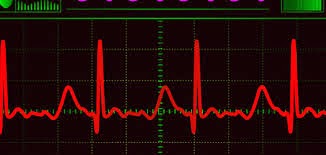Continuing Education
Get Cardiology related Articles, Journals, Videos and more details at Radcliffe Cardiology site.
Online Cardiovascular Disease
Go to read Online Cardiovascular Disease relarted articles via atrial fibrillation association afa.
Cardiology Mayo Clinic
Cardiology Mayo Clinic provides informative info about cardiology at RC site.
Cardiovascular Research Foundation
Free and register PDF and journales available at here!!!
Cardiology Video
Arrange seminar and online video conference by expert cardiologist, Visit at site.
Sunday, 29 June 2014
Optimal imaging for interventional cardiology
Advances in the design and technology of medical devices and delivery systems, coupled with demand for alternative non-surgical therapies for common medical problems, cardiology diseases and heart failure, have led to an increase in the volume, variety and complexity of non-coronary cardiac interventional procedures performed.
The greater complexity of these newer procedures, particularly those involving heart valve intervention, necessitates more sophisticated and exacting imaging techniques, both to facilitate appropriate case selection and to provide procedural guidance, thus increasing the likelihood of successful outcome. Contemporary advances in echocardiography imaging techniques ensure these modalities are well suited to the imaging requirements of this exciting and expanding field of interventional cardiology. Realtime 3D imaging, made possible by the development of a
full matrix transducer capable of acquiring pyramidal-shaped ultrasound data sets, has been a major advance in transthoracic echocardiography (TTE) for examining patients with suspected heart failure. Progress can also be seen in the development of transducers and systems capable of
single-beat 3D acquisitions, thus eradicating stitching artefacts, are now available. Miniaturisation of this 3D technology has enabled coupling with a transoesophageal echocardiography (TEE) probe providing high-quality 3D TEE images for patients with cardiology diseases.
The ideal echocardiography modality would provide high-quality, realtime 3D imaging in a format easily comprehended by the interventional cardiologist, with minimal
interference to the flow of the interventional procedure being performed. It would be safe, minimally invasive and widely available at low cost. Currently, no one echocardiography imaging modality fulfils all these criteria. Each has relative advantages and disadvantages compared with the others. Therefore, selection of the optimal imaging modality for any given interventional cardiac procedure must take into account both the specific requirements of the procedure and the relative strengths and weaknesses of the imaging modality to ensure the greatest likelihood of successful outcome.














